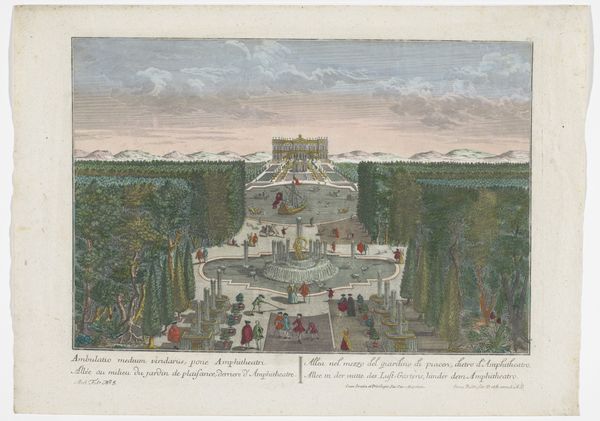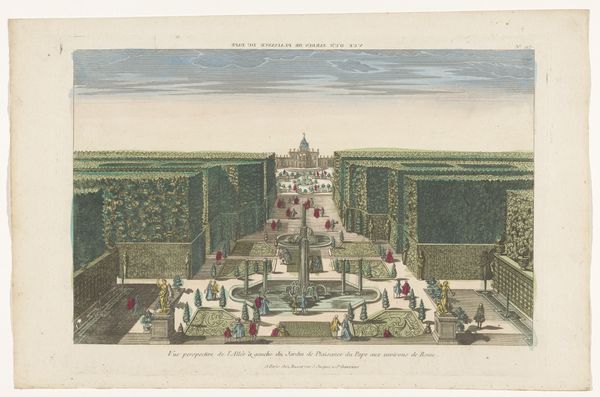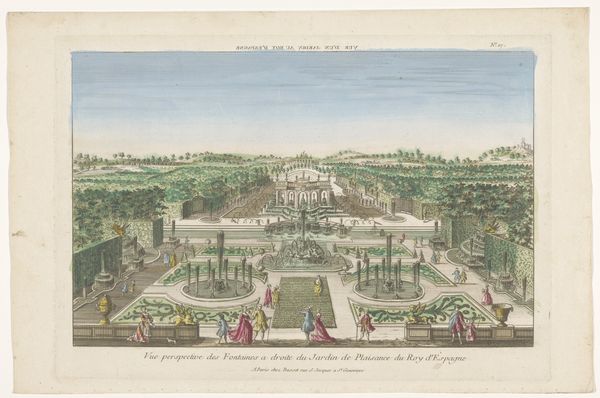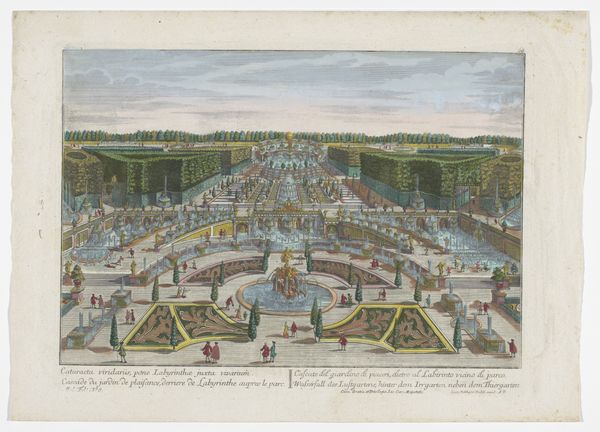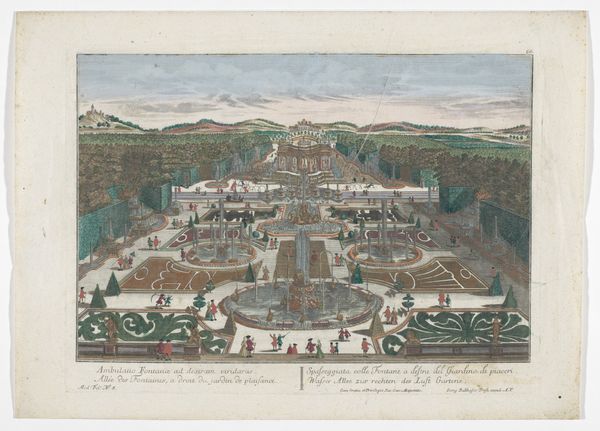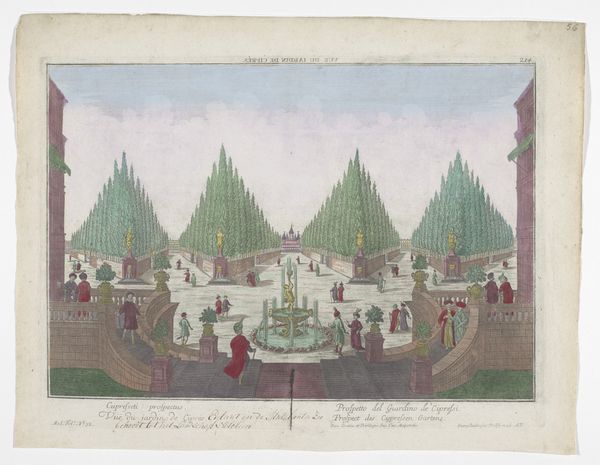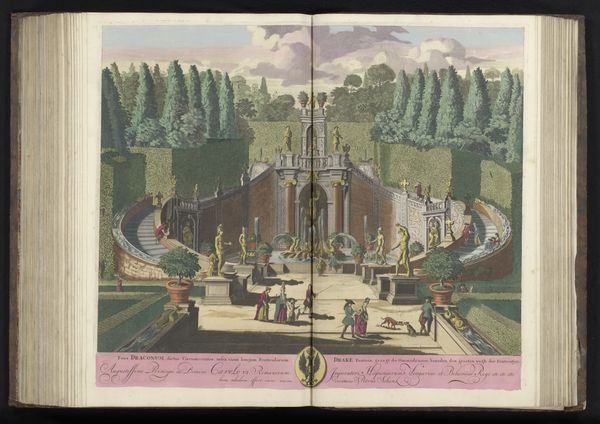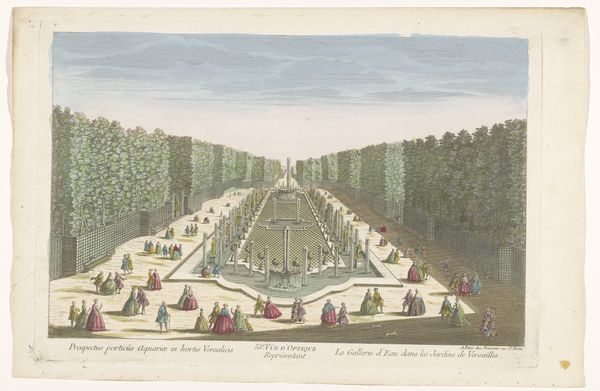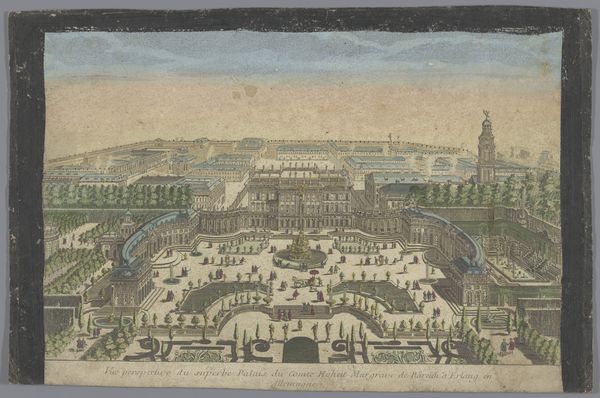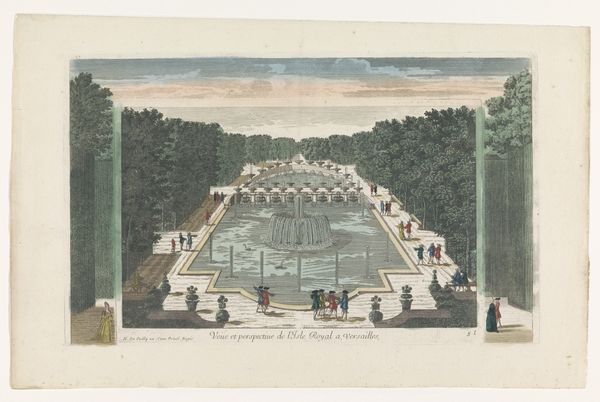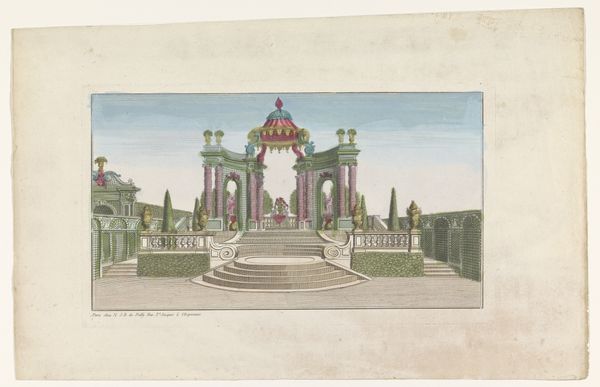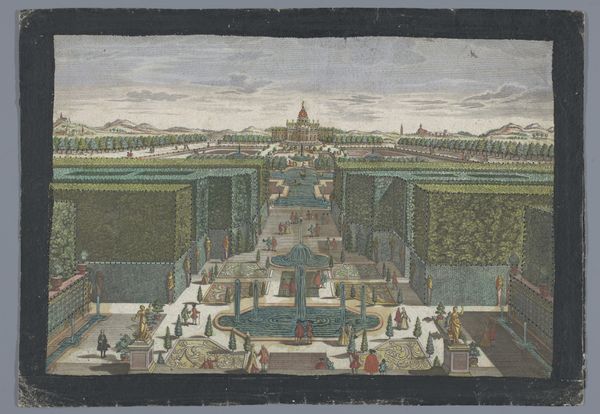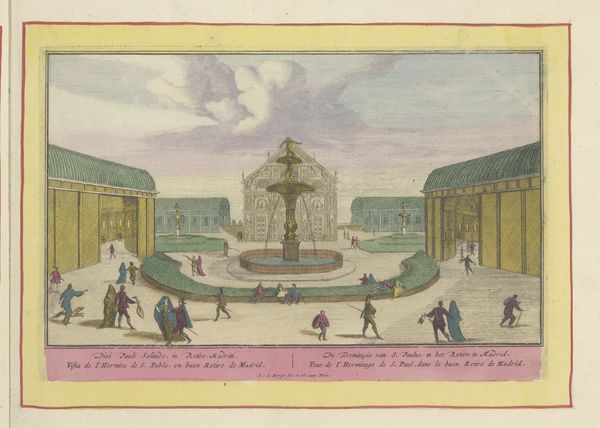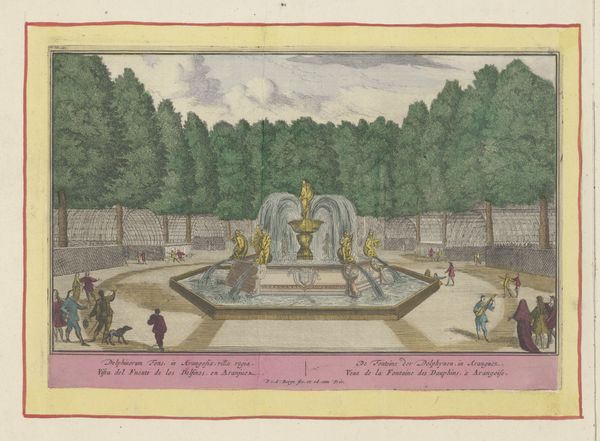
Gezicht op een laan aan de linkerzijde van een tuin 1742 - 1801
0:00
0:00
georgbalthasarprobst
Rijksmuseum
Dimensions: height 302 mm, width 421 mm
Copyright: Rijks Museum: Open Domain
Editor: This etching with watercolor, titled "View of an avenue on the left side of a garden," is attributed to Georg Balthasar Probst and thought to be made sometime between 1742 and 1801. I'm struck by its rigid, almost stage-like composition. The perspective feels very deliberate. What catches your eye when you look at this? Curator: It reminds me of childhood games where nature was my playhouse, and I was a prince in an imaginary castle. It also resonates with rococo fantasies that often mirrored, like elaborate puzzles that promised secret pleasures. Look how the strong linear perspective draws our eye to the distant architecture – like a whispered invitation! It's all about constructed views and controlling nature. Don’t you find it somewhat artificial, yet delightful? Editor: Absolutely! I see what you mean about the Rococo period. Are those strong lines and sharp angles typical, as compared to, say, a looser landscape painting? Curator: Precisely. It's a controlled chaos, or a playful arrangement that whispers about privilege and a curated experience of nature. Can you see how each carefully placed statue or sculpted bush is intended to charm, almost like set pieces in a play? They are there for effect! This is an invitation to enjoy yourself, *provided* you’re aware of your social standing. Editor: That's fascinating; I hadn't considered the social aspect so explicitly. I suppose these gardens were status symbols just as much as places for strolling. Curator: Exactly. So much of art at that time was. Editor: Well, I will think twice now about "ordered nature," and remember it’s usually only ordered for some! Curator: Excellent! Sometimes, beauty can conceal much more than it reveals!
Comments
No comments
Be the first to comment and join the conversation on the ultimate creative platform.
